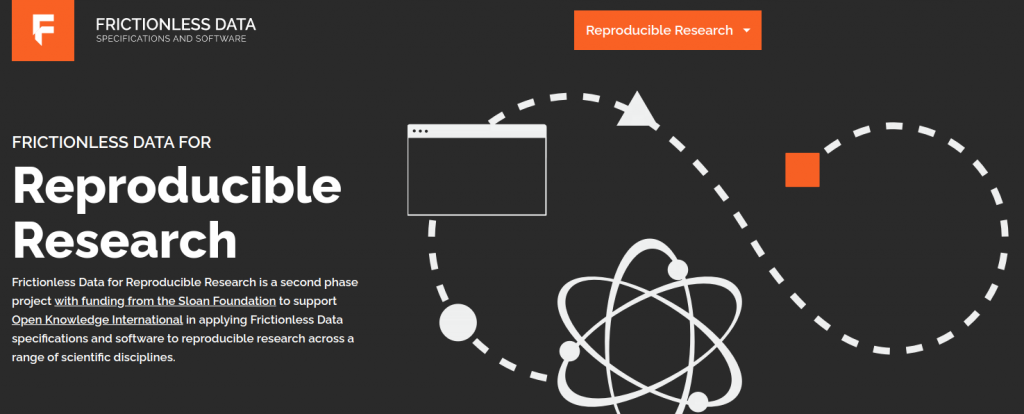The Frictionless Data Reproducible Research Fellows programme, supported by the Sloan Foundation, aims to train graduate students, postdoctoral scholars, and early career researchers how to become champions for open, reproducible research using Frictionless Data tools and approaches in their field.
Apply today to join the Second Cohort of Frictionless Data fellows! Fellows will learn about Frictionless Data, including how to use Frictionless tools in their domains to improve reproducible research workflows, and how to advocate for open science.
Working closely with the Frictionless Data team, fellows will lead training workshops at conferences, host events at universities and in labs, and write blogposts and other communications content.
In addition to mentorship, we are providing fellows with stipends of $5,000 to support their work and time during the nine-month long fellowship.
We welcome applications using this form from 27th April until 1 June 2020, with the fellowship starting in the late summer. We value diversity and encourage applicants from communities that are under-represented in science and technology, people of colour, women, people with disabilities, and LGBTI+ individuals.
Frictionless Data for Reproducible Research
The fellowship is part of the Frictionless Data for Reproducible Research project at the Open Knowledge Foundation, and is the second iteration. Frictionless Data aims to reduce the friction often found when working with data, such as when data is poorly structured, incomplete, hard to find, or is archived in difficult to use formats. This project, funded by the Sloan Foundation, applies our work to data-driven research disciplines, in order to help researchers and the research community resolve data workflow issues.
At its core, Frictionless Data is a set of specifications for data and metadata interoperability, accompanied by a collection of software libraries that implement these specifications, and a range of best practices for data management. The core specification, the Data Package, is a simple and practical “container” for data and metadata. The Frictionless Data approach aims to address identified needs for improving data-driven research such as generalised, standard metadata formats, interoperable data, and open-source tooling for data validation.
Fellowship program
The first cohort of fellows ran from Fall 2019 til Summer 2020, and you can read more about their work on the fellows blog at fellows.frictionlessdata.io/blog. During the fellowship, our team will be on hand to work closely with you as you complete the work. We will help you learn Frictionless Data tooling and software, and provide you with resources to help you create workshops and presentations. Also, we will announce fellows on the project website and will be publishing your blogposts and workshops slides within our network channels. We will provide mentorship on how to work on an open project, and will work with you to achieve your fellowship goals.
How to apply
The fund is open to early career research individuals, such as graduate students and postdoctoral scholars, anywhere in the world, and in any scientific discipline. Successful applicants will be enthusiastic about reproducible research and open science, have some experience with communications, writing, or giving presentations, and have some technical skills (basic experience with Python, R, or Matlab for example), but do not need to be technically proficient. If you are interested, but do not have all of the qualifications, we still encourage you to apply.
If you have any questions, please email the team at frictionlessdata@okfn.org, ask a question on the project’s gitter channel, or check out the fellows FAQ section. Apply soon, and share with your networks!
Lilly is the Product Manager for the Frictionless Data for Reproducible Research project. She has her PhD in neuroscience from Oregon Health and Science University, where she researched brain injury in fruit flies and became an advocate for open science and open data. Lilly believes that the future of research is open, and is using Frictionless Data tooling within the researcher community to make science more reproducible.











